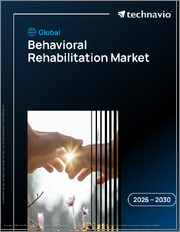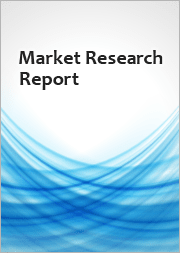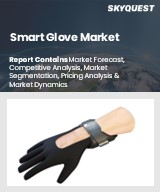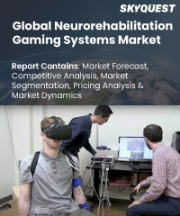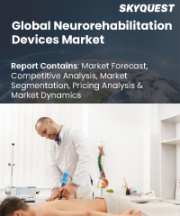
|
시장보고서
상품코드
1859815
애완동물 매개 요법 서비스 시장 예측(-2032년) : 동물 유형별, 치료법 유형별, 용도별, 최종사용자별, 지역별 분석Pet-Assisted Therapy Services Market Forecasts to 2032 - Global Analysis By Animal Type (Dogs, Cats and Other Companion Animals), Therapy Type, Application, End User and By Geography |
||||||
Stratistics MRC에 따르면 세계의 애완동물 매개 요법 서비스 시장은 2025년에 2억 7,770만 달러를 차지하며 예측 기간 중 CAGR 8.5%로 성장하며, 2032년에는 4억 9,140만 달러에 달할 전망입니다.
동물매개치료(AAT)라고도 불리는 반려동물 매개 치료 서비스는 훈련된 동물을 구조적으로 사용하여 신체적, 정서적, 인지적 또는 사회적 치유를 지원하는 서비스입니다. 이러한 서비스는 문서화된 치료 계획의 일환으로 의료 전문가에 의해 제공되며, 불안, 우울증, PTSD, 운동 장애와 같은 상태를 대상으로 하는 경우가 많습니다. 일반적인 치료 동물로는 개, 말, 때로는 고양이와 작은 포유류 등이 있으며, 치료 목표에 따라 선택됩니다. 동물과의 교감은 스트레스를 줄이고, 기분을 좋게 하고, 의사소통을 강화하며, 동기를 부여하는 데 도움이 됩니다. 가벼운 동물과의 접촉과는 달리, 반려동물 매개 치료는 목표 지향적이고, 측정 가능하며, 보다 광범위한 임상 치료 및 재활 치료 전략에 통합되어 있습니다.
정신건강에 대한 의식의 향상
정신건강에 대한 인식 증가는 반려동물 매개 치료 서비스 시장의 강력한 촉진요인입니다. 스트레스, 불안, 우울증, 사회적 고립에 대한 인식이 높아지면서 의료 프로바이더, 학교, 재활센터 등이 동물 매개 중재를 도입하는 계기가 되고 있습니다. 치료 동물은 정서적 웰빙을 향상시키고, 외로움을 줄이고, 사회적 상호작용을 강화하는 데 도움을 주며, 프로그램을 더욱 매력적이고 효과적으로 만듭니다. 이러한 추세는 새로운 노력을 장려하고, 환자의 접근성을 확대하며, 전 세계에서 인증된 치료 동물과 훈련된 인력에 대한 수요를 증가시킴으로써 시장 성장을 가속하고 있습니다.
제한된 접근성 및 훈련된 인력
치료 프로그램에 대한 접근성 제한과 훈련된 인력의 부족은 반려동물 매개 치료 서비스 시장의 큰 걸림돌로 작용하고 있습니다. 많은 지역에서는 공인된 핸들러와 제대로 훈련된 동물이 부족하여 병원, 학교, 요양시설에서 서비스 이용이 제한되어 있습니다. 이 부족은 프로그램 실행을 지연시키고, 환자의 이용 범위를 좁히고, 서비스 품질에 영향을 미칩니다. 그 결과, 동물 매개 치료 개입에 대한 수요 증가에 대응하고 사업을 확장하기 위한 문제에 직면하여 시장 확대에 제약을 받게 됩니다.
임상 검증 및 조사 지원
임상 검증 및 연구 지원 증가는 반려동물 매개 치료 서비스 시장의 중요한 성장 요인입니다. 스트레스 감소, 인지 기능 개선, 정서적 행복감 향상 등 측정 가능한 효과를 입증하는 과학적 연구는 의료 프로바이더, 학교, 간병인의 신뢰도를 높입니다. 증거에 기반한 성과는 치료 프로그램의 광범위한 채택을 촉진하고, 자금을 모으고, 정책의 통합을 지원합니다. 이 검증은 이해관계자의 신뢰를 높일 뿐만 아니라, 인증된 치료 동물 프로그램의 확대를 촉진하고 세계 시장의 성장을 가속할 것입니다.
높은 운영 비용
높은 운영비용은 반려동물 매개 치료 서비스 시장의 큰 문제점으로 지적되고 있습니다. 동물 관리, 훈련, 인증, 보험, 운송과 관련된 비용은 특히 비영리 및 소규모 프로바이더의 경우 예산을 압박하는 요인으로 작용합니다. 이러한 경제적 부담은 프로그램 확장을 제한하고, 환자의 접근성을 떨어뜨리며, 의료 및 교육 기관에서의 채택을 지연시키고 있습니다. 그 결과, 치료 프로그램의 품질과 규제 준수를 유지하면서 서비스를 지속하는 데 어려움을 겪게 되어 시장 성장을 저해하고 있습니다.
COVID-19의 영향
COVID-19 팬데믹은 사회적 거리두기, 봉쇄, 위생 문제로 인해 치료동물과 환자의 대면 교류가 제한되면서 반려동물 매개 치료 서비스 시장을 크게 혼란에 빠뜨렸습니다. 많은 프로그램이 운영 중단이나 축소로 인해 정신건강 및 재활 서비스에 영향을 미치고 있습니다. 그 대안으로 가상 치료 세션이 등장했으나, 동물과 직접 접촉할 수 없기 때문에 그 효과는 감소했습니다. 회복을 위해서는 안전한 대면 세션의 재개와 시장 성장을 회복하기 위한 위생 프로토콜의 적용이 필요합니다.
예측 기간 중개 매개 치료 분야가 가장 큰 분야가 될 것으로 예측됩니다.
반려견의 높은 반응성, 정서적 지능, 훈련의 용이성으로 인해 반려견 매개 치료 분야는 예측 기간 중 가장 큰 시장 점유율을 차지할 것으로 예측됩니다. 환자와 강한 유대감을 형성하는 개의 능력은 불안, PTSD, 발달장애 치료에 이상적입니다. 개는 문화와 임상 환경을 초월하여 널리 받아들여지고 있으므로 확장 가능한 전개가 가능합니다. 병원, 학교, 노인요양시설에서 치료견의 도입이 증가함에 따라 치료견 시장 입지가 더욱 강화되고 있으며, 다양한 치료용도에서 지속적인 수요를 촉진하고 있습니다.
예측 기간 중 재활센터 분야가 가장 높은 CAGR을 보일 것으로 예측됩니다.
예측 기간 중 재활센터 분야는 가장 높은 성장률을 보일 것으로 예측됩니다. 이 센터들은 회복을 촉진하고, 운동 협응력을 향상시키며, 정서적 회복력을 강화하기 위해 구조화된 동물과의 교감을 점점 더 많이 도입하고 있습니다. 홀리스틱 케어 모델에 대한 투자 증가와 치료 동물의 효능을 지원하는 임상적 증거의 확대가 도입의 계기가 되고 있습니다. 이 부문은 장기 치료에서 비약물적 치유 접근법에 대한 제도적 지원과 인식이 높아짐에 따라 수혜를 받고 있습니다.
가장 큰 점유율을 차지하는 지역:
예측 기간 중 아시아태평양은 정신건강에 대한 인식 증가, 의료 인프라 확대, 동물과의 접촉에 대한 문화적 개방성으로 인해 가장 큰 시장 점유율을 차지할 것으로 예측됩니다. 일본, 중국, 인도 등의 국가에서는 웰니스 프로그램, 노인 케어, 소아 치료 등에서 치료 동물의 도입이 증가하고 있습니다. 정부의 정신건강 및 정신건강 증진 노력과 도시 지역에서의 반려동물 양육 증가가 결합되어 수요를 촉진하고 있습니다. 이 지역은 인구 기반이 크고 치료 규범이 발전하고 있으며, 중요한 성장 거점으로 자리매김하고 있습니다.
CAGR이 가장 높은 지역:
예측 기간 중 북미가 가장 높은 CAGR을 보일 것으로 예상되는데, 이는 강력한 규제 프레임워크와 반려동물 중재 요법이 널리 받아들여지고 있기 때문입니다. 미국과 캐나다는 정신건강, 재활, 교육 현장에 치료동물을 도입하는 데 있으며, 선도적인 역할을 하고 있습니다. 특히 재향군인이나 청소년들 사이에서 불안과 PTSD의 유병률이 높아지면서 도입이 가속화되고 있습니다. 보험 적용, 치료동물 훈련 프로그램 확대, 의료기관의 강력한 지원은 이 지역 전체에서 급속한 시장 확대에 기여하고 있습니다.
무료 커스터마이징 서비스
이 보고서를 구독하는 고객은 다음과 같은 무료 맞춤화 옵션 중 하나를 이용할 수 있습니다.
- 기업 소개
- 추가 기업 종합 프로파일링(최대 3사)
- 주요 기업의 SWOT 분석(최대 3사)
- 지역 구분
- 고객의 관심에 따른 주요 국가별 시장 추정, 예측, CAGR(주: 타당성 확인에 따라 다름)
- 경쟁사 벤치마킹
- 제품 포트폴리오, 지역적 입지, 전략적 제휴를 기반으로 한 주요 기업 벤치마킹
목차
제1장 개요
제2장 서론
- 개요
- 이해관계자
- 분석 범위
- 분석 방법
- 데이터 마이닝
- 데이터 분석
- 데이터 검증
- 분석 어프로치
- 분석 자료
- 1차 조사 자료
- 2차 조사 자료
- 전제조건
제3장 시장 동향 분석
- 촉진요인
- 억제요인
- 시장 기회
- 위협
- 용도 분석
- 최종사용자 분석
- 신흥 시장
- 신형 코로나바이러스(COVID-19)의 영향
제4장 Porters Five Force 분석
- 공급업체의 교섭력
- 바이어의 교섭력
- 대체 제품의 위협
- 신규 참여 기업의 위협
- 기업간 경쟁
제5장 세계의 애완동물 매개 요법 서비스 시장 : 동물 유형별
- 개
- 고양이
- 기타 반려동물
제6장 세계의 애완동물 매개 요법 서비스 시장 : 치료법 유형별
- 개 매개 요법
- 말 매개 요법
- 기타 동물 매개 요법
제7장 세계의 애완동물 매개 요법 서비스 시장 : 용도별
- 정신 질환
- 불안
- 우울증
- PTSD
- 신체 재활
- 수술후 회복
- 이동 지원
- 교육 지원
- 자폐 스펙트럼 장애
- 학습 장애
- 기타 용도
제8장 세계의 애완동물 매개 요법 서비스 시장 : 최종사용자별
- 병원·진료소
- 재활 센터
- 교육 기관
- 개업의
- 기타 최종사용자
제9장 세계의 애완동물 매개 요법 서비스 시장 : 지역별
- 북미
- 미국
- 캐나다
- 멕시코
- 유럽
- 독일
- 영국
- 이탈리아
- 프랑스
- 스페인
- 기타 유럽
- 아시아태평양
- 일본
- 중국
- 인도
- 호주
- 뉴질랜드
- 한국
- 기타 아시아태평양
- 남미
- 아르헨티나
- 브라질
- 칠레
- 기타 남미
- 중동 및 아프리카
- 사우디아라비아
- 아랍에미리트
- 카타르
- 남아프리카공화국
- 기타 중동 및 아프리카
제10장 주요 동향
- 계약, 사업 제휴·협력, 합병사업
- 기업인수합병(M&A)
- 신제품 발매
- 사업 확장
- 기타 주요 전략
제11장 기업 프로파일링
- Zoetis
- Dogs for Better Lives
- Merck Animal Health
- Green Chimneys
- Mars Petcare
- PetSmart Charities
- Elanco Animal Health
- PAWS With A Cause
- IDEXX Laboratories
- HABRI(Human Animal Bond Research Institute)
- Pet Partners
- Assistance Dogs International
- Therapy Dogs International
- Canine Companions for Independence
- Delta Society Australia
According to Stratistics MRC, the Global Pet-Assisted Therapy Services Market is accounted for $277.7 million in 2025 and is expected to reach $491.4 million by 2032 growing at a CAGR of 8.5% during the forecast period. Pet-Assisted Therapy Services, also known as Animal-Assisted Therapy (AAT), involve the structured use of trained animals to support physical, emotional, cognitive, or social healing. These services are delivered by healthcare professionals as part of a documented treatment plan, often targeting conditions like anxiety, depression, PTSD, or motor impairments. Common therapy animals include dogs, horses, and occasionally cats or small mammals, chosen based on therapeutic goals. Interaction with animals can reduce stress, improve mood, enhance communication, and boost motivation. Unlike casual animal visits, pet-assisted therapy is goal-oriented, measurable, and integrated into broader clinical or rehabilitative care strategies.
Market Dynamics:
Driver:
Rising Mental Health Awareness
The growing awareness of mental health is a strong driver for the Pet-Assisted Therapy Services Market. Increasing recognition of stress, anxiety, depression, and social isolation has led healthcare providers, schools, and rehabilitation centers to adopt animal-assisted interventions. Therapy animals help improve emotional well-being, reduce loneliness, and enhance social interaction, making programs more appealing and effective. This trend fuels market growth by encouraging new initiatives, expanding patient reach, and boosting demand for certified therapy animals and trained personnel globally.
Restraint:
Limited Access & Trained Personnel
Limited access to therapy programs and a shortage of trained personnel significantly hinder the Pet-Assisted Therapy Services Market. Many regions lack certified handlers and properly trained animals, restricting service availability to hospitals, schools, and care facilities. This scarcity slows program implementation, reduces patient reach, and impacts service quality. Consequently, market expansion is constrained, as organizations face challenges in scaling operations and meeting growing demand for animal-assisted therapeutic interventions.
Opportunity:
Clinical Validation & Research Support
The rise in clinical validation and research support is a significant growth driver for the Pet-Assisted Therapy Services Market. Scientific studies demonstrating measurable benefits-such as reduced stress, improved cognitive function, and enhanced emotional well-being-boost credibility among healthcare providers, schools, and caregivers. Evidence-based outcomes encourage wider adoption of therapy programs, attract funding, and support policy integration. This validation not only enhances stakeholder confidence but also promotes the expansion of certified therapy animal programs, fueling global market growth.
Threat:
High Operational Costs
High operational costs pose a major challenge to the Pet-Assisted Therapy Services Market. Expenses related to animal care, training, certification, insurance, and transportation strain budgets, particularly for non-profit and small-scale providers. These financial burdens limit program expansion; reduce accessibility for patients, and slow adoption in healthcare and educational institutions. Consequently, market growth is hindered, as organizations struggle to sustain services while maintaining quality and regulatory compliance in therapy programs.
Covid-19 Impact
The COVID-19 pandemic significantly disrupted the Pet-Assisted Therapy Services Market, as social distancing, lockdowns, and hygiene concerns limited in-person interactions between therapy animals and patients. Many programs faced suspension or reduced operations, impacting mental health and rehabilitation services. While virtual therapy sessions emerged as an alternative, the lack of direct animal contact reduced effectiveness. Recovery depends on resuming safe, in-person sessions and adapting hygiene protocols to restore market growth.
The canine-assisted therapy segment is expected to be the largest during the forecast period
The canine-assisted therapy segment is expected to account for the largest market share during the forecast period, due to dogs' high responsiveness, emotional intelligence, and ease of training. Their ability to form strong therapeutic bonds with patients makes them ideal for treating anxiety, PTSD, and developmental disorders. Dogs are widely accepted across cultures and clinical settings, enabling scalable deployment. Increasing integration of therapy dogs in hospitals, schools, and elder care facilities further strengthens their market position, driving sustained demand across diverse therapeutic applications.
The rehabilitation centers segment is expected to have the highest CAGR during the forecast period
Over the forecast period, the rehabilitation centers segment is predicted to witness the highest growth rate, due to growing adoption of pet-assisted therapy in post-trauma and physical rehabilitation programs. These centers increasingly integrate structured animal interactions to accelerate recovery, improve motor coordination, and enhance emotional resilience. Rising investments in holistic care models and expanding clinical evidence supporting therapy animal efficacy are catalyzing adoption. The segment benefits from institutional support and growing awareness of non-pharmacological healing approaches in long-term care.
Region with largest share:
During the forecast period, the Asia Pacific region is expected to hold the largest market share due to rising mental health awareness, expanding healthcare infrastructure, and cultural openness to animal companionship. Countries like Japan, China, and India are witnessing increased integration of therapy animals in wellness programs, elder care, and pediatric therapy. Government initiatives promoting mental health and emotional well-being, coupled with growing urban pet ownership, are fueling demand. The region's large population base and evolving therapeutic norms position it as a key growth hub.
Region with highest CAGR:
Over the forecast period, the North America region is anticipated to exhibit the highest CAGR, owing to strong regulatory frameworks, and widespread acceptance of pet-assisted therapy. The U.S. and Canada lead in integrating therapy animals into mental health, rehabilitation, and educational settings. Rising prevalence of anxiety and PTSD, especially among veterans and youth, is accelerating adoption. Favorable insurance coverage, expanding training programs for therapy animals and robust advocacy from healthcare institutions contribute to rapid market expansion across the region.
Key players in the market
Some of the key players profiled in the Pet-Assisted Therapy Services Market include Zoetis, Dogs for Better Lives, Merck Animal Health, Green Chimneys, Mars Petcare, PetSmart Charities, Elanco Animal Health, PAWS With A Cause, IDEXX Laboratories, HABRI (Human Animal Bond Research Institute), Pet Partners, Assistance Dogs International, Therapy Dogs International, Canine Companions for Independence and Delta Society Australia.
Key Developments:
In June 2025, Mars Petcare, in collaboration with Big Idea Ventures, launched the 2025 Global Next Generation Pet Food Program. This initiative aims to accelerate sustainable innovation in the pet food sector by supporting startups with novel ingredients, sustainable fats and proteins, and advanced processing technologies.
In March 2025, Elanco signed a research agreement with WEDterinary LLC, co-founded by William Doyle, to explore novel therapies for chronic kidney disease in cats and investigate approaches to extend the healthy lifespan of pets. The collaboration aims to leverage gene therapy and AI technologies to advance pet healthcare.
Animal Types Covered:
- Dogs
- Cats
- Other Companion Animals
Therapy Types Covered:
- Canine-Assisted Therapy
- Equine-Assisted Therapy
- Other Animal-Assisted Therapies
Applications Covered:
- Mental Health Disorders
- Physical Rehabilitation
- Educational Support
- Other Applications
End Users Covered:
- Hospitals and Clinics
- Rehabilitation Centers
- Educational Institutions
- Private Practices
- Other End Users
Regions Covered:
- North America
- US
- Canada
- Mexico
- Europe
- Germany
- UK
- Italy
- France
- Spain
- Rest of Europe
- Asia Pacific
- Japan
- China
- India
- Australia
- New Zealand
- South Korea
- Rest of Asia Pacific
- South America
- Argentina
- Brazil
- Chile
- Rest of South America
- Middle East & Africa
- Saudi Arabia
- UAE
- Qatar
- South Africa
- Rest of Middle East & Africa
What our report offers:
- Market share assessments for the regional and country-level segments
- Strategic recommendations for the new entrants
- Covers Market data for the years 2024, 2025, 2026, 2028, and 2032
- Market Trends (Drivers, Constraints, Opportunities, Threats, Challenges, Investment Opportunities, and recommendations)
- Strategic recommendations in key business segments based on the market estimations
- Competitive landscaping mapping the key common trends
- Company profiling with detailed strategies, financials, and recent developments
- Supply chain trends mapping the latest technological advancements
Free Customization Offerings:
All the customers of this report will be entitled to receive one of the following free customization options:
- Company Profiling
- Comprehensive profiling of additional market players (up to 3)
- SWOT Analysis of key players (up to 3)
- Regional Segmentation
- Market estimations, Forecasts and CAGR of any prominent country as per the client's interest (Note: Depends on feasibility check)
- Competitive Benchmarking
- Benchmarking of key players based on product portfolio, geographical presence, and strategic alliances
Table of Contents
1 Executive Summary
2 Preface
- 2.1 Abstract
- 2.2 Stake Holders
- 2.3 Research Scope
- 2.4 Research Methodology
- 2.4.1 Data Mining
- 2.4.2 Data Analysis
- 2.4.3 Data Validation
- 2.4.4 Research Approach
- 2.5 Research Sources
- 2.5.1 Primary Research Sources
- 2.5.2 Secondary Research Sources
- 2.5.3 Assumptions
3 Market Trend Analysis
- 3.1 Introduction
- 3.2 Drivers
- 3.3 Restraints
- 3.4 Opportunities
- 3.5 Threats
- 3.6 Application Analysis
- 3.7 End User Analysis
- 3.8 Emerging Markets
- 3.9 Impact of Covid-19
4 Porters Five Force Analysis
- 4.1 Bargaining power of suppliers
- 4.2 Bargaining power of buyers
- 4.3 Threat of substitutes
- 4.4 Threat of new entrants
- 4.5 Competitive rivalry
5 Global Pet-Assisted Therapy Services Market, By Animal Type
- 5.1 Introduction
- 5.2 Dogs
- 5.3 Cats
- 5.4 Other Companion Animals
6 Global Pet-Assisted Therapy Services Market, By Therapy Type
- 6.1 Introduction
- 6.2 Canine-Assisted Therapy
- 6.3 Equine-Assisted Therapy
- 6.4 Other Animal-Assisted Therapies
7 Global Pet-Assisted Therapy Services Market, By Application
- 7.1 Introduction
- 7.2 Mental Health Disorders
- 7.2.1 Anxiety
- 7.2.2 Depression
- 7.2.3 PTSD
- 7.3 Physical Rehabilitation
- 7.3.1 Post-Surgery Recovery
- 7.3.2 Mobility Assistance
- 7.4 Educational Support
- 7.4.1 Autism Spectrum Disorders
- 7.4.2 Learning Disabilities
- 7.5 Other Applications
8 Global Pet-Assisted Therapy Services Market, By End User
- 8.1 Introduction
- 8.2 Hospitals and Clinics
- 8.3 Rehabilitation Centers
- 8.4 Educational Institutions
- 8.5 Private Practices
- 8.6 Other End Users
9 Global Pet-Assisted Therapy Services Market, By Geography
- 9.1 Introduction
- 9.2 North America
- 9.2.1 US
- 9.2.2 Canada
- 9.2.3 Mexico
- 9.3 Europe
- 9.3.1 Germany
- 9.3.2 UK
- 9.3.3 Italy
- 9.3.4 France
- 9.3.5 Spain
- 9.3.6 Rest of Europe
- 9.4 Asia Pacific
- 9.4.1 Japan
- 9.4.2 China
- 9.4.3 India
- 9.4.4 Australia
- 9.4.5 New Zealand
- 9.4.6 South Korea
- 9.4.7 Rest of Asia Pacific
- 9.5 South America
- 9.5.1 Argentina
- 9.5.2 Brazil
- 9.5.3 Chile
- 9.5.4 Rest of South America
- 9.6 Middle East & Africa
- 9.6.1 Saudi Arabia
- 9.6.2 UAE
- 9.6.3 Qatar
- 9.6.4 South Africa
- 9.6.5 Rest of Middle East & Africa
10 Key Developments
- 10.1 Agreements, Partnerships, Collaborations and Joint Ventures
- 10.2 Acquisitions & Mergers
- 10.3 New Product Launch
- 10.4 Expansions
- 10.5 Other Key Strategies
11 Company Profiling
- 11.1 Zoetis
- 11.2 Dogs for Better Lives
- 11.3 Merck Animal Health
- 11.4 Green Chimneys
- 11.5 Mars Petcare
- 11.6 PetSmart Charities
- 11.7 Elanco Animal Health
- 11.8 PAWS With A Cause
- 11.9 IDEXX Laboratories
- 11.10 HABRI (Human Animal Bond Research Institute)
- 11.11 Pet Partners
- 11.12 Assistance Dogs International
- 11.13 Therapy Dogs International
- 11.14 Canine Companions for Independence
- 11.15 Delta Society Australia






